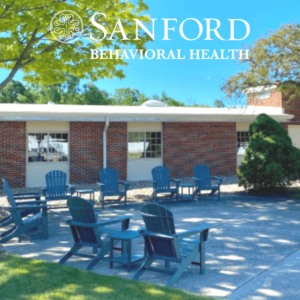How to Help an Alcoholic Family Member

Alcohol is a widely accessible and accepted substance. Sports events, restaurants, theatres, and even grocery stores offer this drink, and, in many circles, you may be considered weird if you decide not to drink. However, alcohol has a hidden cost: some people can begin to misuse alcohol or become addicted to it.
Unfortunately, alcohol addiction doesn’t occur in a vacuum. It causes stress for both family and friends if someone they love is addicted to it. If you have an alcoholic family member, know that you’re not alone. Our family therapy and counseling program can offer support and education to help you through this challenging period.
If someone you love is addicted to alcohol or another substance, we want to be there for you. Contact Sanford Behavioral Health today at 616.202.3326 to learn more about identifying alcoholic symptoms and how our services can offer support.
How to Help an Alcoholic Family Member
If you’re a family member of an alcoholic, know that there is no one way to help your loved one. There is a variety of approaches available, and one may be more effective than another.
Talk to Your Loved One
Your loved one may not be aware that there is a problem. Try talking to them when they are sober. Avoid “you” statements. Instead, express how you feel about their drinking habit. You can also provide facts and talk about how it affects the rest of the family. In addition, it can be helpful to offer some tools that they can use to stop drinking. You can also offer to join them if they decide to talk to an addiction treatment specialist or a doctor.
Offer to Help
It can be easy to feel alone if you are battling an addiction. Therefore, if you think you have an alcoholic family member, remind them that there is help available. You can offer things such as:
- Taking them to or attending counseling or group meetings
- Finding an alcohol addiction treatment program
- Exploring activities that don’t involve drinking
- Listening when they’re feeling stressed or overwhelmed
As you offer this helping hand, remember that every recovery journey faces setbacks from time to time. Don’t feel discouraged if you don’t immediately see improvement.
Don’t Enable Them
Though you want what is best for your loved one, there are boundaries you need to set, both for yourself and your loved one. In most cases, it isn’t effective to completely cut off contact with your loved one, but at the same time, it’s important not to help them keep drinking as well. Avoid giving them money, and, if you have to, pay for it yourself rather than giving them the money. Don’t take on their responsibilities, even if you think it would be better for everyone.
In addition, it’s a good idea to avoid drinking around them, particularly if they’re ready to enter recovery. Drinking around your loved one could trigger a relapse, which could put them back where they started.
Learn More About Helping an Alcoholic Family Member at Sanford Behavioral Health
Alcohol addiction is one of the most common addictions in the United States and the world at large. If someone you love is battling an alcohol addiction, you’re not alone. Through our Family Program, you can come to understand more about your loved one’s addiction and the steps that treatment requires. In addition, family counseling can be an effective and helpful treatment option, both for you and your loved one.
If you have questions about helping an alcoholic family member, we welcome you to reach out to our compassionate treatment team today. Contact us at 616.202.3326 or use our convenient online form for more information.


